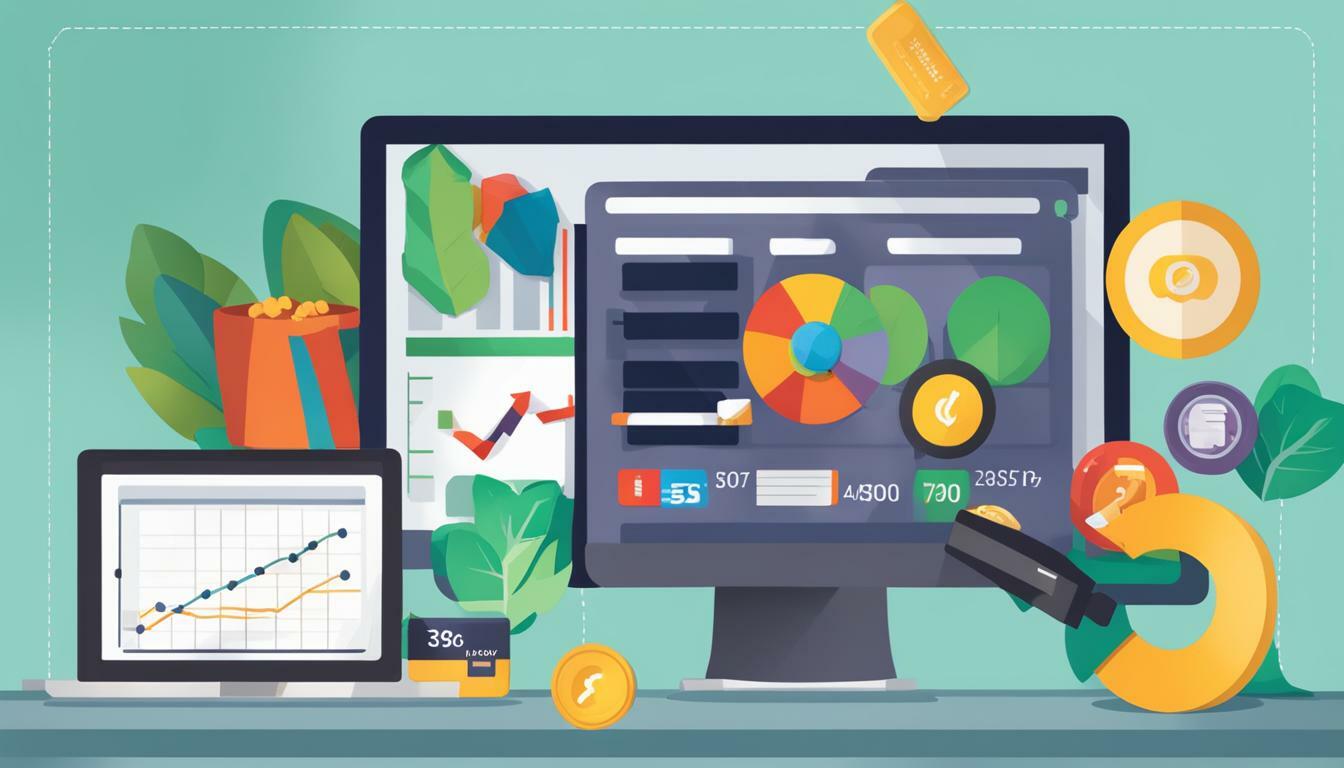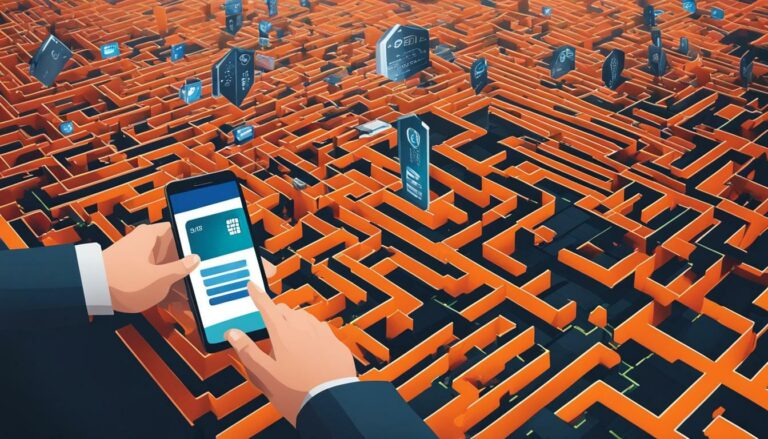Understanding the Role of Credit in Financial Literacy Education

Credit plays a vital role in financial literacy education, empowering individuals to make informed financial decisions and navigate the complex world of borrowing and lending. It enables consumers to acquire goods and services before payment, but it comes with fees and interest that need to be understood and managed.
Establishing good credit is crucial for various aspects of life, such as renting or buying a house, job opportunities, and access to loans. A good credit score, ranging from 690 to 850, not only demonstrates financial responsibility but can also save money by qualifying for lower interest rates and better loan terms.
To establish good credit, it is important to take proactive steps. This includes opening checking and savings accounts, paying bills on time, paying down balances, checking credit reports yearly, and protecting your identity from potential fraud or theft.
Credit reports can be obtained from Equifax, Experian, and TransUnion. It is essential to review these reports regularly and ensure the accuracy of personal information, as any inaccuracies can have a negative impact on creditworthiness.
🚨 TUIC Errors + Low Credit Score?
CreditScoreIQ helps you build credit faster by reporting utility bills to all 3 bureaus—while you dispute errors.
Start Building Credit Today →Key Takeaways:
- Understanding credit is crucial for financial literacy education.
- Establishing good credit is important for various aspects of life.
- A good credit score can save money and open up opportunities.
- To establish good credit, take proactive steps such as paying bills on time and protecting your identity.
- Credit reports should be checked regularly for accuracy.
The Basics of Credit
Before delving deeper into the role of credit in financial literacy education, it is essential to grasp the basic principles of credit itself. Credit allows consumers to acquire goods and services before payment, providing a valuable tool for managing personal finances. However, it is important to understand that credit comes with fees and interest.
When you borrow money through credit, you essentially agree to pay it back over time, often with added interest. This interest is the cost of borrowing and can vary depending on factors like your credit history and the type of credit you use. It is crucial to borrow responsibly and only take on credit that you can comfortably repay.
To better understand the importance of credit in financial literacy education, it is crucial to recognize its impact on various aspects of life. Good credit is essential when it comes to renting or buying a house, as landlords and mortgage lenders often review credit scores to assess a person’s financial responsibility. Additionally, job opportunities may be influenced by credit history, as some employers consider credit reports during the hiring process. Moreover, access to loans, such as car loans or personal loans, is heavily dependent on creditworthiness.
| Good credit score ranges | Implications on financial well-being |
|---|---|
| 690 to 850 | Good credit can save money through lower interest rates and better loan terms. |
| 300 to 689 | Fair or poor credit may result in higher loan costs and limited borrowing opportunities. |
| Below 300 | Bad credit can make it difficult to obtain loans or credit cards. |
To establish good credit or improve existing credit, there are several steps you can take. Opening checking and savings accounts can demonstrate financial stability and responsibility. Paying bills on time and paying down balances can positively impact credit scores. It is also crucial to check your credit reports regularly to ensure their accuracy and protect yourself from identity theft. Credit reports can be obtained from major credit reporting agencies like Equifax, Experian, and TransUnion.

Credit cards play a significant role in credit education and financial literacy. They allow individuals to borrow money for purchases and can be a valuable tool in establishing and building credit. However, it is essential to use credit cards responsibly to avoid falling into debt or damaging your credit.
Responsible credit card usage involves using only one credit card and paying your monthly bills on time and in full. Avoid charging more than you can afford to pay back and be cautious of warning signs of uncontrolled credit usage. If needed, explore alternatives to credit cards, such as prepaid debit cards or secured credit cards.
When choosing a credit card, it is important to consider various factors. Interest rates can significantly impact the cost of borrowing, so it’s essential to find a card with a competitive rate. Annual fees, foreign transaction fees, and late payment fees can also vary between credit cards, so it’s important to compare options. Different types of credit cards, such as rewards cards, low-interest cards, and student cards, cater to specific needs and financial situations. Taking the time to research and choose the right credit card can lead to better financial management and potential benefits.
Establishing and Managing Credit
Building a solid foundation of credit is crucial for financial success and opens doors to countless opportunities in life. Understanding credit management in financial literacy is essential to ensure individuals can navigate the complexities of borrowing and lending. Credit plays a significant role in various aspects of life, including renting or buying a house, job opportunities, and access to loans. By incorporating credit in financial literacy education, individuals can develop the knowledge and skills necessary to establish and manage credit effectively.
When it comes to establishing good credit, there are several key steps individuals can take. First, it’s important to open checking and savings accounts, as having these accounts demonstrates financial responsibility. Paying bills on time is another crucial factor in building good credit. It shows lenders that you are reliable and trustworthy. Additionally, paying down balances on credit cards and loans helps to improve credit utilization, which is an important aspect of credit scoring.
Regularly checking credit reports is also essential for credit management. Credit reports can be obtained from Equifax, Experian, and TransUnion, and it’s important to review them for accuracy. Mismatched personal information or errors in credit history can negatively impact credit scores. By monitoring credit reports, individuals can identify any discrepancies and take prompt action to rectify them.
| Type of Credit Card | Interest Rate | Annual Fee | Foreign Transaction Fee | Late Payment Fee |
|---|---|---|---|---|
| Rewards Card | Varies | Varies | Varies | Varies |
| Low-Interest Card | Lower than average | Varies | Varies | Varies |
| Student Card | Varies | Varies | Varies | Varies |
When it comes to credit cards, responsible usage is key. Credit cards can be a valuable tool for establishing credit and providing financial flexibility, but they should be used wisely. To stay in control of credit cards, individuals should consider using only one credit card to avoid the temptation of overspending. It’s also important to shop around and choose the best credit card for your needs, considering factors such as interest rates, annual fees, foreign transaction fees, and late payment fees.
By incorporating credit management into financial literacy education, individuals can gain the knowledge and skills necessary to establish and manage credit effectively. This understanding will help them navigate the complexities of borrowing and lending, ultimately leading to financial stability and success.

Credit reports and scores serve as crucial indicators of an individual’s creditworthiness and should be thoroughly understood for effective financial management. A credit report provides a detailed record of your credit history, including information about your credit accounts, payment history, and any public records such as bankruptcies or liens. It is essential to review your credit report regularly to ensure its accuracy and identify any potential errors or fraudulent activity.
To obtain a credit report, you can contact the three major credit reporting bureaus: Equifax, Experian, and TransUnion. You are entitled to receive a free copy of your credit report from each bureau annually. By checking your credit reports, you can gain valuable insights into your financial health and take steps to improve your credit standing.
| Key Factors to Consider | What to Look For |
|---|---|
| Personal Information | Check for accurate details such as your name, address, and social security number. |
| Accounts and Payment History | Review your credit accounts, including credit cards, loans, and mortgages. Ensure that your payment history is correct. |
| Public Records | Examine any bankruptcies, liens, or judgments listed on your credit report. Address any discrepancies or errors promptly. |
| Credit Inquiries | Verify that all credit inquiries listed are legitimate and authorized by you. Multiple inquiries within a short period can negatively impact your credit score. |
Your credit score, on the other hand, is a numerical representation of your creditworthiness, ranging from 300 to 850. It is determined based on factors such as your payment history, credit utilization, length of credit history, types of credit accounts, and recent credit inquiries. A higher credit score indicates a lower credit risk and can result in better loan terms, lower interest rates, and increased financial opportunities.
It is important to note that while credit reports and scores are significant, they are only part of the overall picture of an individual’s financial health. Practicing responsible credit management, such as making timely payments, keeping credit card balances low, and limiting the number of credit inquiries, can greatly impact your creditworthiness and improve your overall financial well-being.

Credit cards can be powerful tools when used wisely, but they require careful management to avoid potential pitfalls. Understanding how to effectively utilize credit cards is an important aspect of financial literacy education. By incorporating credit education into your financial knowledge, you can make informed decisions and maximize the benefits of credit cards.
To master credit cards, it is essential to practice responsible usage. Start by using only one credit card to keep your spending manageable and to develop discipline in managing your finances. This approach will also make it easier to keep track of your transactions and monitor your credit card balances.
Another important tip is to always pay your credit card bills on time and in full. This not only helps you avoid late payment fees and high interest charges but also helps you establish and maintain a good credit history. Paying off your credit card balance each month demonstrates financial responsibility and can positively impact your credit score.
It is also crucial to avoid charging more on your credit card than you can comfortably afford to repay. Keeping your credit utilization ratio low – preferably below 30% of your credit limit – demonstrates financial discipline and improves your creditworthiness. By practicing these habits, you can minimize the risk of accumulating excessive debt and falling into financial difficulties.
| Mastering Credit Cards Tips |
|---|
| Use only one credit card |
| Pay credit card bills on time and in full |
| Avoid charging more than you can repay |
| Keep credit utilization ratio below 30% |
Remember, mastering credit cards is about using them as a beneficial financial tool rather than letting them control your finances. By incorporating credit education into your financial literacy, you can make informed decisions, establish good credit, and pave the way towards financial success.
Image alt tag: Incorporating Credit in Financial Literacy

Selecting the right credit card can significantly impact one’s financial well-being, making it essential to evaluate various factors before making a decision. When choosing a credit card, it is crucial to consider the interest rates, annual and foreign transaction fees, and late payment fees. Different types of credit cards are available, each tailored to meet different needs and preferences.
If you plan to carry a balance on your credit card, it is important to opt for a card with a low-interest rate. This ensures that you minimize the amount of interest you pay on your outstanding balance. On the other hand, if you intend to pay your balance in full each month, you may want to consider a rewards card. Rewards cards offer benefits such as cashback, travel points, or discounts on specific purchases. Assess your spending habits and preferences to determine which rewards program aligns best with your needs.
For students or individuals with limited or no credit history, a student credit card may be the ideal choice. These cards typically have lower credit limits and may come with added perks like no annual fees. They are designed to help students build their credit history responsibly and develop good financial habits from an early age.
| Type of Credit Card | Key Features |
|---|---|
| Rewards Cards | Earn cashback, travel points, or discounts on specific purchases |
| Low-Interest Cards | Lower interest rates for carrying a balance |
| Student Cards | Designed for students with limited or no credit history |

Before applying for a credit card, it is recommended to compare offers from different issuers. Look for introductory offers, such as zero percent APR for a certain period or waived annual fees for the first year. Take into account your current financial situation and credit history when deciding between secured and unsecured credit cards. Secured credit cards require a cash deposit as collateral, making them an excellent option for individuals looking to build or rebuild their credit.
Remember, choosing the right credit card is about aligning the card’s features with your needs and financial goals. By doing your research, comparing options, and understanding the terms and conditions, you can make an informed decision that maximizes your benefits and minimizes potential costs.
Conclusion
Developing a solid understanding of credit is a crucial aspect of financial literacy education, paving the way for a brighter financial future. Credit plays a significant role in our lives, allowing us to acquire goods and services before payment. However, it’s important to remember that credit also comes with fees and interest, which can have a major impact on our financial well-being if not managed effectively.
Establishing good credit is essential for various aspects of life, including renting or buying a house, job opportunities, and access to loans. A good credit score, ranging from 690 to 850, demonstrates financial responsibility and opens doors to better financial opportunities. To establish good credit, individuals can take proactive steps such as opening checking and savings accounts, paying bills on time, paying down balances, checking credit reports yearly, and protecting their identities.
Credit reports, which can be obtained from Equifax, Experian, and TransUnion, are vital tools for understanding creditworthiness. It’s crucial to review personal information on credit reports regularly to ensure accuracy. This information directly impacts our credit scores, and any discrepancies should be addressed promptly. By staying informed about our credit reports and scores, we can actively manage our financial well-being.
Credit cards can be powerful tools when used responsibly. They offer advantages such as purchase protection and help individuals establish and build good credit. However, it’s important to use credit cards judiciously and avoid falling into the trap of uncontrolled credit usage. To maintain control, it is advised to use only one credit card, shop for the best credit card options, consider a secured card if needed, avoid charging more than one can afford to pay off, and always pay monthly bills on time and in full. Recognizing warning signs of overuse and exploring alternative payment methods can also contribute to a healthy credit management strategy.
When choosing a credit card, it’s crucial to consider various factors such as interest rates, annual and foreign transaction fees, and late payment fees. Different types of credit cards, such as rewards cards, low-interest cards, and student cards, cater to different needs and financial situations. By selecting the right credit card, individuals can optimize their financial outcomes and make the most of credit opportunities.
Having good credit allows us to save money through lower interest rates and better loan terms. On the other hand, bad credit can result in higher loan costs and limited opportunities. Additionally, having no credit history can make it challenging for lenders to assess creditworthiness. Taking steps to improve bad credit or establish credit history with no credit can include paying bills on time, keeping balances under 30% of the credit limit, obtaining secured credit cards or credit-builder loans, and becoming an authorized user on someone’s credit card.
Remember, credit education is an essential part of financial literacy, and understanding credit empowers individuals to make informed financial decisions, secure better opportunities, and achieve long-term financial success.
FAQ
Q: What is credit?
A: Credit is the ability to borrow money or obtain goods and services before making payment. It comes with fees and interest.
Q: Why is establishing good credit important?
A: Good credit is essential for various aspects of life, including renting or buying a house, job opportunities, and access to loans.
Q: How can I establish good credit?
A: To establish good credit, open checking and savings accounts, pay bills on time, pay down balances, check credit reports yearly, and protect your identity.
Q: Where can I get my credit report?
A: You can obtain credit reports from Equifax, Experian, and TransUnion. It is important to check and ensure the accuracy of personal information on credit reports.
Q: What are the advantages and disadvantages of credit cards?
A: Credit cards can provide purchase protection and help establish good credit. However, they can also lead to overuse and high interest/fees.
Q: How can I stay in control of my credit cards?
A: To stay in control of credit cards, use only one credit card, shop for the best credit card, consider a secured card, avoid charging what cannot be paid for, and pay monthly bills on time and in full.
Q: What factors should I consider when choosing a credit card?
A: When choosing a credit card, consider interest rates, annual and foreign transaction fees, and late payment fees. Different types of credit cards include rewards cards, low-interest cards, and student cards.
Q: How does credit impact my financial well-being?
A: Having good credit can save money, while bad credit can lead to higher loan costs and limited opportunities. No credit makes it difficult for lenders to make lending decisions.
Q: How can I improve bad credit or establish credit history with no credit?
A: To improve bad credit or establish credit history with no credit, pay bills on time, keep bills under 30% of the credit limit, obtain secured credit cards or credit-builder loans, and become an authorized user on someone’s credit card.
Ready to Improve Your Credit?
Disputing TUIC errors is step one. Step two? Boost your score by reporting utility payments with CreditScoreIQ.
Get Started Now (Only $1 Trial) →3-bureau reporting • $1M identity insurance • Dark web monitoring






